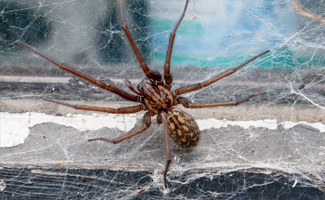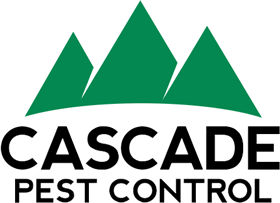Author: Kurt Treftz, Cascade Pest Control
 Whether you have a genuine phobia or simply can’t stand the thought of spiders crawling through your home, there’s no doubt that a spider infestation is a very unwelcome sight for homeowners, especially throughout the Seattle area. Autumn is one of the most common times of the year for spider problems, because many spiders emerge to look for mates and forage for food. While spiders are mostly harmless, some can be dangerous and all make for unwelcome guests in the home. Effective spider control begins with understanding what causes infestations, what you can do to protect your home, and where to turn when you need spider extermination.
Whether you have a genuine phobia or simply can’t stand the thought of spiders crawling through your home, there’s no doubt that a spider infestation is a very unwelcome sight for homeowners, especially throughout the Seattle area. Autumn is one of the most common times of the year for spider problems, because many spiders emerge to look for mates and forage for food. While spiders are mostly harmless, some can be dangerous and all make for unwelcome guests in the home. Effective spider control begins with understanding what causes infestations, what you can do to protect your home, and where to turn when you need spider extermination.
What Causes Spider Infestations? How to Make Your Home Less Appealing for Spiders
Spiders, like most pests who invade Seattle homes, are often seeking both food and shelter. However, the food that they’re looking for and the places where they shelter can be quite different from other common pests. Spider pest control starts with knowing what spiders like to eat, how they find entry points to the home, and where they nest, which will help you spot some of the most common causes of spider infestations:
- Easy Access to the Home – All pests which infest the home need an entry point, and homes with unsealed entry points, foundation cracks, loose vents, poorly fitting doors, or other common openings can be prime targets for a spider infestation. Once a spider gets indoors, it can lay eggs which lead to a quickly increasing population. Sealing up entrance points is a key step in spider control, because it helps keep them from entering your home in the first place.
- Ample Indoor Food Sources – Spiders will often enter homes in search of food, so having other types of insects in the home – or even a full-blown infestation – will often attract spiders as well. Many of the insects that spiders like to eat will congregate around lights near entry points to the home, and spiders will also search your home’s hidden places in hopes of finding a meal. Keeping other insect populations under control can give spiders one less reason to set up shop inside your home, but spider treatment may be necessary as well if too many have invaded your structure.
- Clutter and Unused Rooms – Most spiders favor areas where they are free to spin webs, hunt, and live without interference from humans, so little-used rooms are popular places for spiders to establish themselves. This is especially true if the unused room happens to have a lot of clutter, because clutter provides the perfect place for spiders to hide out. Keep rooms clean, orderly, and regularly vacuumed to help ward off spiders.
- Plants and Compost Around the Home – It’s not just clutter inside the home that can attract a spider infestation. Spiders also like to hide out in plants, debris, and compost piles around the home. When temperatures turn extreme, those spiders will often look for safety indoors. Moving plants, debris, and compost away from the home provides one less place for spiders to nest.
- Webs and Egg Sacs – If spiders are free to spin their webs and lay their eggs, a small spider problem can quickly become a full-blown infestation. Keep it from getting to that point by vacuuming spider webs and egg sacs when you find them in the home.
- Waterfront Homes – Aquatic flies and other bugs, that live near water, tend to boost spider populations and infestations around picture windows. And usually those windows with the best views!
Professional Spider Control
Eliminating food sources, entry points, and common hiding places can help keep spiders out of your home, but dealing with spider extermination is best left to the pest control experts. Our experienced Cascade spider control technicians are here to help you identify and eliminate spider problems in the Seattle/Puget Sound area.
